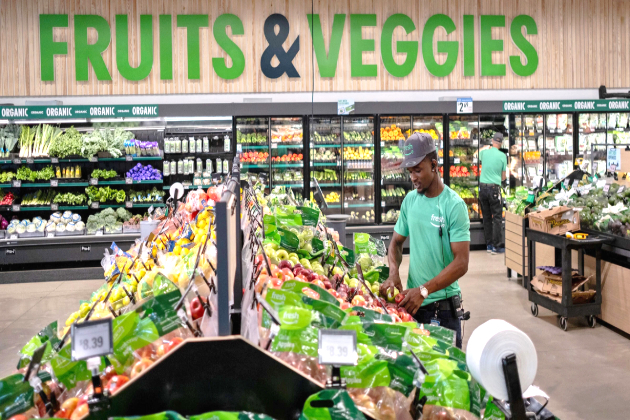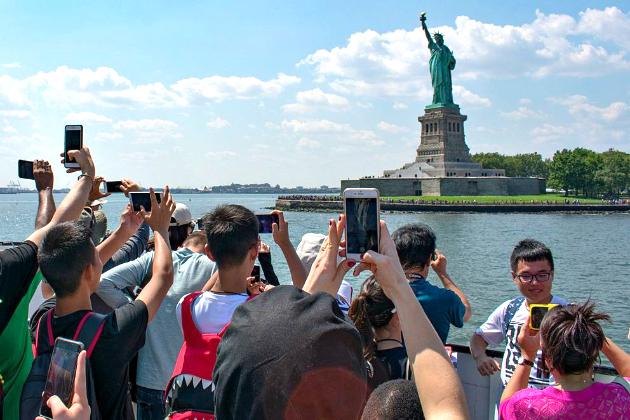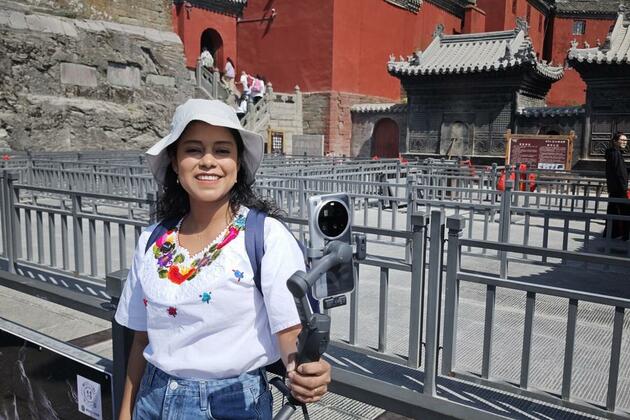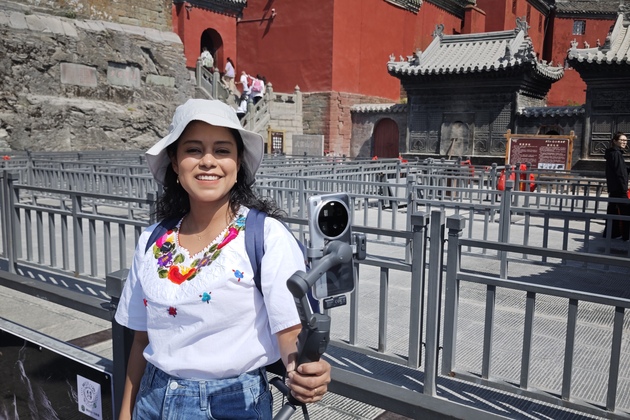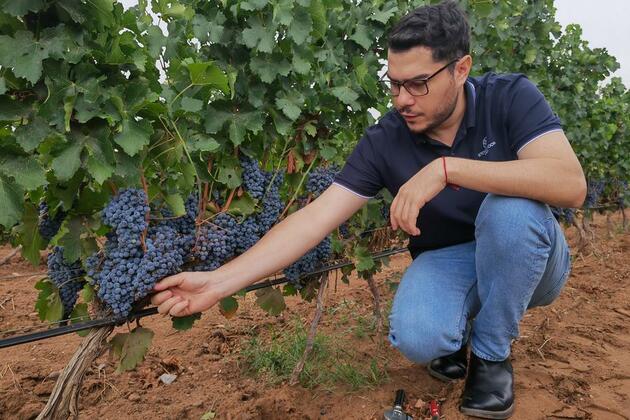TikTok influencer's killing on camera highlights the femicide crisis in Latin America
The Conversation
16 May 2025, 16:45 GMT+10

Valeria Marquez, a beauty influencer, was shot dead by a man on May 14 while live streaming on TikTok at her beauty salon in the Mexican city of Guadalajara. The authorities are investigating the case as a suspected femicide, where women or girls are killed on account of their gender.
The killing of Marquez is part of a gender-based violence epidemic that has gripped Latin America for decades. The threat of such violence there is so severe that in 2020, as the world battled COVID, the UN secretary-general, Antonio Guterres, called it a "shadow pandemic".
The situation in Mexico is especially alarming. A 2021 report by Amnesty International found that at least ten women or girls are murdered in the country every day. The report added that the authorities have largely proved unwilling to take action to stop the killing.
On the surface, Mexico has made significant strides in improving gender equality. Claudia Sheinbaum Pardo became the first woman to be elected as Mexico's president in 2024. There are also several female governors heading powerful Mexican provinces, and female political leadership can be found in great numbers in regional and municipal bodies.
Get your news from actual experts, straight to your inbox. Sign up to our daily newsletter to receive all The Conversation UK's latest coverage of news and research, from politics and business to the arts and sciences.
But despite the visible presence of women in public life, parts of Mexican society remain deeply sexist. Researchers see the prevalence of machismo, a culture that encourages an extreme sense of masculine pride, as having facilitated male dominance over women.
Femicide in Mexico became particularly rife in the 1990s. The introduction of the North American free trade agreement saw many factories producing goods for export set up near Mexico's border with the US. These factories are known as maquiladoras.
The emergence of maquiladoras created low-skilled job opportunities. And a generation of women sought economic freedom by working in the factories. By 2006, more than half of the workers at maquiladoras were women, largely the result of their comparatively low wage demands.
While this culture shift allowed women greater economic autonomy, it also created deep resentment from some men. A spate of murders were carried out in the Mexican border city Ciudad Juarez in the 1990s, which claimed the lives of roughly 400 women.
Research has established a connection between female employment in the maquiladoras and the consequent rise in femicide in Mexican border towns. Many of the women killed in Ciudad Juarez worked in the maquiladoras.
Some people also point to the fact that the culture of male chauvinism in Mexico - and throughout Latin America more broadly - is pervasive.
When the Mexican government in 2020 established a hotline to report issues of domestic abuse and violence against women in the country, it was flooded by tens of thousands of reports. But when journalists asked the then president, Andres Manuel Lopez Obrador, about this figure he brushed it aside: "90% of those calls that you're referring to are fake."
Gender-based violence in Mexico and in large parts of Latin America does not exist solely because of the culture of extreme masculinity. It also thrives because of institutional failure to bring the perpetrators to justice.
There are robust laws and regulations to protect women against abuse in Latin America. The inter-American convention on the prevention, punishment and eradication of violence against women, signed in the Brazilian city of Belem in 1994, is a good example.
It was adopted by all countries in Latin America and the Caribbean, formalising violence against women as a violation of their human rights. However, despite the presence of this legal framework, there has not been a corresponding decline in rates of femicide.
Criminal impunity is one of the greatest hindrances to addressing the issue of femicide throughout the region. In Mexico, for example, more than 90% of all crimes go unsolved. And in Brazil, many cases of violence against women go unreported.
When they are reported, the victims and their families often face obstacles in the judicial system. Despite a 39% increase in the number of femicide cases in Brazil from 2019 to 2020, the sentencing for this crime only increased by 24%.
According to a World Bank report from 2023, there is an institutional complicity in perpetrating violence against women in Honduras. The report alleges that the country's national police force "turn a blind eye to the soaring number of femicides".
Similarly, according to Diana Portal, of the ombudsman's office in Peru, femicide in the country is spiralling out of control because the negligent state machinery is incapable of addressing the issue. Consequently, criminals feel they can "rape, disappear or kill a woman without consequence".
Latin America and the Caribbean has never had a dearth of female public figures. The region has had more than a dozen female leaders as of 2025. Argentina, Brazil and Chile have recently had female heads of state, while Peru, Honduras, Nicaragua and Mexico currently have female presidents. Mexico's patron saint, Virgen de Guadalupe, is also a woman.
However, the presence of these high-profile figures in public life has not deterred sections of society from targeting women with violence.
Incensed by the culture of impunity and male chauvinism that perpetuates femicide in Latin America, the late Pope Francis denounced the practice. In a visit to Peru in 2018, he said violence against women cannot be treated as "normal". "It is not right for us to look the other way and let the dignity of so many women, especially young women, be trampled upon."
Unfortunately, despite the moral homily contained in his message, Latin America has been utterly incapable of addressing this subculture of gender violence.
 Share
Share
 Tweet
Tweet
 Share
Share
 Flip
Flip
 Email
Email
Watch latest videos
Subscribe and Follow
Get a daily dose of Caribbean Herald news through our daily email, its complimentary and keeps you fully up to date with world and business news as well.
News RELEASES
Publish news of your business, community or sports group, personnel appointments, major event and more by submitting a news release to Caribbean Herald.
More InformationBusiness
SectionUS Energy Department plans major regulatory rollback
WASHINGTON, D.C.: The U.S. Department of Energy has announced plans to eliminate or amend more than 40 regulations as part of President...
US inflation slows to 4-year low as food prices fall, rents rise
WASHINGTON, D.C.: In April, U.S. consumer prices went up slightly. Rent costs increased, but food prices went down, which helped keep...
US sees absolute decline in international visitor spending
NEW YORK - International travel spending in the United States is projected to decline by 7 percent in 2025, amounting to a US$12.5...
Mixed close for U.S. stocks Thursday, dollar mostly lower
NEW YORK, New York - U.S. stocks were mostly higher Thursday, although the Nasdaq Composite finished modestly behind. This is a market...
Puerto Rico courts manufacturers amid escalating global trade war
SAN JUAN, Puerto Rico: As the global trade war deepens, Puerto Rico is seizing the moment to lure international companies to relocate...
Eli Lilly’s Zepbound outperforms Wegovy in obesity drug study
INDIANAPOLIS, Indiana: Eli Lilly's obesity drug Zepbound led to nearly 50 percent more weight loss than Novo Nordisk's Wegovy in the...
Latin America
SectionTrump ends tariff talks for most nations
Washington will send out letters to some 150 countries instead of striking deals with each individually Washington will inform 150...
Guatemalan expat bridges cultures between China, Latin America through social media
WUHAN, May 16 (Xinhua) -- Celia Esquivel Salguero, from Guatemala, first arrived in China in 2014 as a foreign student of Chinese Language...
CHINA-HUBEI-GUATEMALAN EXPAT-CULTURE EXCHANGE (CN)
(250516) -- HUHAN, May 16, 2025 (Xinhua) -- Celia Esquivel Salguero hosts a livestreaming for overseas netizens on Wudang Mountain...
West pitting India against China Lavrov
Russias foreign minister said attempts were being made to provoke a serious clash between the Asian giants The West is attempting...
Argentine winemaker finds his ideal blend in China
YINCHUAN, May 16 (Xinhua) -- Entering summer, tens of thousands of hectares of wine grapes turn into a green ocean in the Gobi Desert...
TikTok influencer's killing on camera highlights the femicide crisis in Latin America
Valeria Marquez, a beauty influencer, was shot dead by a man on May 14 while live streaming on TikTok at her beauty salon in the Mexican...


